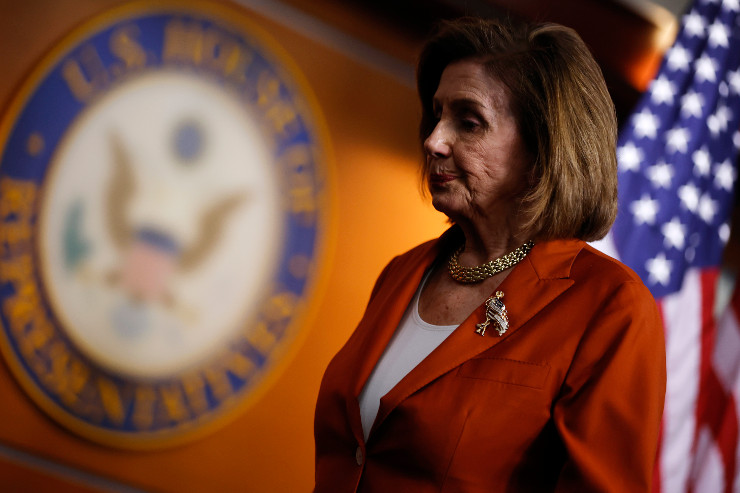Too many people either thought the Vietnam documentary was the best thing ever and that critics were ideologues, which is Phil Weiss’s position, or else they were ideologues who came to the documentary expecting the worst and didn’t let the reality alter their opinions much. How fortunate for both sides that I fall in the middle. Seriously, it was definitely worth watching– I saw maybe 80 percent and will check out the book from the library to get the rest. However, it was flawed in some important ways and Phil Weiss’s “I don’t care” is a silly response to the criticisms.
I expected a centrist liberal production which would take the safe centrist liberal line, which is that the war was a tragic mistake by well intentioned Americans. This turned out to be the case– they started out by saying that. But to some degree they then undermined that narrative showing how much lying went on. I missed the Gulf of Tonkin portion and will have to read the book and then some other accounts to see if that was as misleading as some critics said. The biggest problem for me was the lack of context. Yes, the war was justified as a response to worldwide communist expansion. So there should have been some portion of an episode mentioning what we did during the Cold War era in numerous other places including Iran, Guatemala, Latin America in general, Indonesia, and sub-Saharan Africa, both during and after the Vietnam War. It is not a pretty story. The Israeli-Palestinian conflict was also seen as part of the Cold War conflict for a time. And after the Soviet Union collapse, we continued to act like an Empire. Vietnam was not an aberration.
We also badly need an honest PBS account of our history in Korea, which began after World War II and in many respects is similar to Vietnam. It started out as a guerrilla war complete with massacres in South Korea before the official war began. And I suspect most Americans have never heard of just how murderous our bombing campaign was, though the mainstream press has been mentioning this more in recent years.
The other thing I expected was the standard centrist liberal line on atrocities. In other words, some handwaving at burning villages, Morley Safer’s famous report, and a lot of focus on My Lai as an isolated atrocity where one American unit went crazy. But the Burns documentary was much better than that. In general the documentary did a decent job reporting the atrocities of both sides. It was America-centric and flawed– My Lai still received disproportionate attention compared to the larger issue because My Lai came as such a shock to the American self image and is iconic in a bad way. But Neil Sheehan was on the documentary pointing out that if the massacre had been conducted with bombs and artillery it would have gotten no attention at all, because that level of killing with those weapons happened all the time.
And they had a segment describing Operation Speedy Express. This was not an isolated massacre by half crazed soldiers. It was General Julian Ewell ordering his Ninth Army Division to pacify the Mekong Delta by compiling a massive body count. And they did, reporting nearly 11,000 dead, the majority of whom were unarmed civilians. Nobody was held accountable. This was mass murder as policy, not something that could be blamed on a second lieutenant. I am closely paraphrasing Newsweek reporter Kevin Buckley (as reported by Nick Turse at the Nation), who first uncovered this story and was allowed to report on it in much abbreviated form in the magazine. The editor refused to publish more, stating to Buckley that doing so would feel like piling on in the aftermath of the coverage of My Lai.
In the lingo of the Nakedcapitalism bloggers, that’s our “famously free press” doing what it does. I learned the details in Phillip Knightley’s history of war correspondents, ” The First Casualty”. The Burns documentary did a brief account of the operation, which was something I did not expect, but echoing the usual mainstream approach gave more attention to My Lai because that had the greater impact for Americans. But Speedy Express is more truly representative of the American war at its worst.
Other examples of good reporting are Jonathan Schell’s short book, originally a New Yorker article, on the destruction of Quang Ngai province and Sheehan’s report on the destruction of some fishing villages, also in Quang Ngai, where he estimated up to 600 civilians were killed. These were not My Lai style massacres, but the normal operation of the war, and the deaths were inflicted via bombs and cannon and were not the face to face atrocities that Americans find so shocking. We are only shocked by civilians killed by bombs or cannons when our enemies do it.
The Burns documentary also covered the Tiger Force atrocities and to some degree the killing of civilians in the bombing of the North. My impression, though, is that the torture of American Prisoners of War got more attention. That should obviously be covered too and I thought they did a good job. But more should have been said about the bombing.
Rounding out the atrocity coverage, the Vietnam documentary did discuss the torture of prisoners in South Vietnamese prisons and mentioned the number held– 200,000. On the communist side they found North Vietnamese willing to admit the communists massacred innocent people at Hue, something the government has denied. They discussed the people sent to reeducation camps after the war, stated there were some massacres, but not as large as some predicted, and that hundreds of thousands of boat people died.
And on the subject of communist atrocities, one criticism from the left seems wrong to me. The criticism is that Burns portrays it as a civil war when it was really a war of liberation against a puppet regime set up by the Americans. Why can’t it be both? A quarter million soldiers from the ARVN (Army of the Republic of Vietnam) died fighting the communists. As noted, hundreds of thousands of Vietnamese died fleeing the regime in boats. The communist side murdered Vietnamese civilians they claimed were collaborators. Communist governments are repressive and it is hardly surprising that some Vietnamese hated communism and did not want the communists to win. In no way does this justify the American involvement, but it is wrong to deny that many Vietnamese fought against the communists or didn’t want to live under their rule.
My biggest complaint on the atrocities is the one Nick Turse gave at the Intercept: “The Ken Burns Vietnam Documentary Glosses Over Devastating Civilian Toll.”
Why didn’t Burns with his massive budget interview civilian survivors of American military campaigns? Turse had no difficulty doing this. If Burns were to do a ten part series on the Israeli- Palestinian conflict, could you imagine him not doing numerous interviews with Israeli family members of people killed in terrorist attacks? How could you not interview a large sample of Vietnamese civilians the way Turse did? Phil Weiss doesn’t care. Phil liked the documentary and doesn’t care that it should have been better.
Our standards are too low– we see a documentary that meets the minimal standards of fairness any piece should meet and it is so much better than the average swill we get that we think it is a work of unparalleled perfection. Well, no. It wasn’t terrible the way some lefties say, but it could have been better. Perhaps it was as good as it could be and still be aired on PBS.
Source Article from http://mondoweiss.net/2017/10/documentary-americas-communism/
Related posts:
Views: 0
 RSS Feed
RSS Feed

















 October 4th, 2017
October 4th, 2017  Awake Goy
Awake Goy 



 Posted in
Posted in  Tags:
Tags: 
















